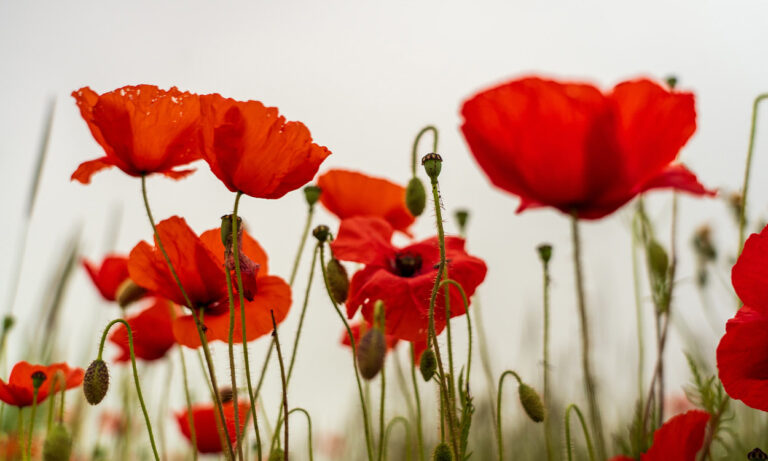‘Nobody knew or cared’: The importance of recognising everyone’s Independence Day
Every year on 11 November, the UK takes a moment to reflect and pay its respects to those who sacrificed their lives fighting in World War I (WWI), on the day it ended back in 1918. On that same day, 57 years later, my motherland, Angola, attained independence from Portugal after almost 400 years of colonial rule. In other words, for me, the day invokes bittersweet emotions and internal dialogue about what patriotism really means.
Now, this isn’t an opinion piece to criticise Britain’s colonial reign over the Commonwealth, but rather a critique of how dominative certain countries’ histories can be and feel. For as long as I can remember, I have exchanged a pound for a poppy and partook in the collective silence on Sundays, but in this era of cultural recognition, is it too much to ask that mine also be considered?
Nisha Dupuis, aged 24, is of Anguillan-Dominican heritage, and on 3 November, Dominica celebrated 44 years of independence from Britain. She told SCREENSHOT that Independence Day is usually a beautiful celebration on the island, where people come together to appreciate their culture and reminisce about the history. And yet, Dupuis hasn’t celebrated the day for a few years now. “I didn’t even celebrate it last year when I moved to London,” she said, “…but don’t feel like I’m having to push down on my history. Instead, it’s about changing the narrative.”
Similarly, for British-born but Angolan native Paulo—whose name has been changed to protect his anonymity—aged 18, the day simply holds strong familial ties. “As I’ve never experienced what Independence Day is like in Angola, I can only go off of what I’ve heard from family and for me, it’s a day for my community in England to come together and eat national dishes or enjoy our native music. I don’t feel like I have to belittle my history but have worked on finding a balance in celebrating both,” he said.
In her piece written for The New Arab, Donia Ismail, a French Algerian-Egyptian journalist pointed out that the sense of festivity for certain diasporas can only be found through connecting with the community, and is something that is rarely depicted or broadcast on mainstream media platforms. Although I concur with the saying “find your tribe and you’ll gain a sense of belonging,” first-hand experience has taught me that, sometimes, being the bridge between two cultures can feel like denouncing your own to cater to everyone else’s.
However, British-Nigerian historian David Olusoga shared that people don’t understand the global nature of WWI—how it involved all nations and was fought all across Africa—and simply believe in the British narrative because they don’t understand their own history. “Most people don’t take the time to learn history, so people are having identities based on a lack of understanding and not reading. I have very little patience for that,” Olusoga said.
WWI was a turning point in African history, not as pivotal as WWII but nevertheless, it reordered the map of the continent roughly to what it is today. The declaration of war alone brought considerable economic disruption to Africa, which followed a depression in the prices paid for its primary products.
For example, in Uganda, there was an overnight increase of 50 per cent in the price of imports, as reported by the United Nations Educational, Scientific and Cultural Organization (UNESCO). The tolls of the war remain prominent throughout Africa today, so while there lies some truth to Olusoga’s theory of ignorance, for me, it’s not as simple as rediscovering where your roots lie but receiving an acknowledgement of the aftermath—something the British government has long neglected to do.
Hajar Chaffag is a 27-year-old Moroccan native. Her motherland celebrated 66 years of independence from France on 18 November, a war in which both her grandfathers fought. Growing up in Morocco, every Independence Day is a public holiday, but she explained that she didn’t recognise the significance until she moved to the US to study abroad and wasn’t given a day off.
“It felt wrong and like nobody knew or cared. I never did anything special for it other than celebrating it with my family but now that I’m not there, I feel like I want to connect with my culture,” Chaffag explained. “My middle school taught using the French system, so I didn’t learn about Morocco’s history,” she added.
When I asked her if she’s ever felt inclined to push down or belittle her history, Chaffag stated that those emotions have never surfaced while in London—where she’s since been living—but they would arise back at home. In Morocco, people don’t make a great deal out of it, she shared. It’s more like a silent sense of patriotism. “I think because I’m surrounded by so many people that don’t understand anything about my history, it gives me a chance to embrace it more and learn more so I can answer when people ask,” she said.
In response to the same question, Olusoga voiced that identities are not simply given, but rather something you have to own and work on. “Somebody who cares about their identity can claim it and there’s much more credence than somebody who doesn’t. If people don’t know their history how can they determine whether remembrance is something that affects them?”
Identities aren’t just based on race but rather on components made up of nationality, ethnicity, religion, social class, locality, and even generation. So, needless to say, it’s fluid, ever-changing, and emotional.
I believe certain countries have been historically branded as the major principal victims of WWI but we often forget to look past the real damage made to other countries. A lot of people died during the war and we should have a tradition of commemorating them. However, over ten countries also celebrate Independence Day in the month of November—so give them the grace of also celebrating their history.





